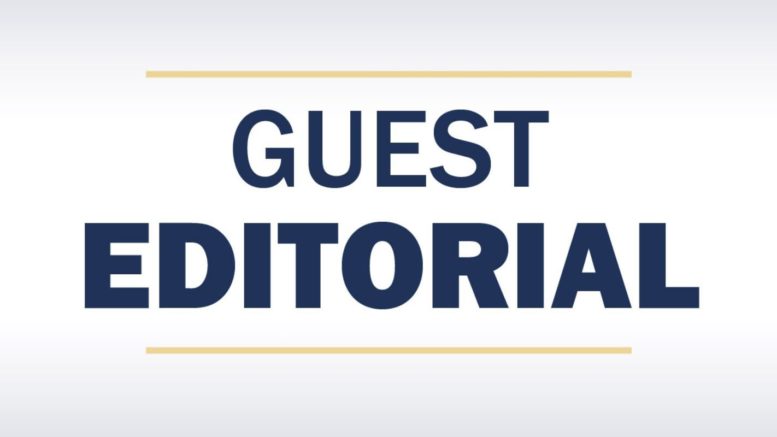That might sound like a silly question, right? We all know what addiction is, don’t we? So what is addiction? Is it the person we see sleeping under a bridge, or the heroin addicted person seeking their next fix?
I have been asked to write an article for this publication, and I decided I would take the liberty to discuss some new ways to look at a very old problem. What is depression? Do you know someone that has depression? Ask them to describe it to you; what about anxiety, many people throw these words around, yet what do they really mean? What about obsessive thinking and obsessive-compulsive disorder, how many times have I heard people say, “I’m obsessive”? Intrusive thoughts, coupled with compulsive behavior, wrapped with shame and guilt lead one to feeling bad more often than feeling good. Where do these feelings come from? Why am I writing about this to explain addiction?
What causes addiction? Does alcohol cause addiction to the drug alcohol? Does heroin cause addiction to heroin? What about those among us that overeat or starve themselves to death, what causes these behaviors?
I am writing this article to point out that if we do not know what causes this behavior, how can we treat it?
I practice locally as a Licensed Clinical Social Worker. I am also credentialed as a Certified Alcohol and Substance Abuse Counselor-G: The ‘G’is a new credential which I earned by learning how gambling fits into this topic, and how to identify and treat gambling.
How many of you reading this article has had a beer or other type of alcoholic beverage? Are you addicted to the drug alcohol? How many have bought a lottery ticket? Have you lost your home, family and your life savings because you started gambling pathologically? Many of your neighbors have addiction, and they have lost everything, especially hope.
Getting back to my original question about depression, can you describe it better now? When someone tells you they are depressed, do you turn to them and suggest they do something and they’ll feel better? They might feel better for the moment, but that is not the essence of depression.
How about telling someone with anxiety not to worry? How effective is that? Think about yourself when you have intrusive thoughts and you’re trying to get to sleep, just tell yourself not to worry, how well does that work?
Yet our best form of treatment today for addiction is to tell people not to repeat the compulsive act, don’t drink, don’t use, avoid the bakery, and etc. People experiencing addiction are trying to live with a constellation of mental health issues.
Traits of depression, anxiety, intrusive thoughts, obsessive thoughts, fear, anger, restlessness and self loathing combine with a compulsive action that makes them feel better for the moment and our best treatment is to tell the person “don’t do that anymore”, yet the only thing that gives the person relief from the symptoms is the compulsive action: so it is repeated. And then we criminalize people for repeating that behavior.
Any type of health treatment that does not include treatment and therapy for both mental and emotional health problems is cheap, hollow and very dismissive.
Our culture is using jails as the deliverers of mental health care.
That in itself is a gross minimization of treating addiction for what it is. We don’t treat people compassionately who have these disorders, yet we profit from them and then we wonder why the behavior is repeated over and over again.
We have set up a revenue stream from sales of alcohol, tobacco, now casino gambling, soon, probably, marijuana. Yet if you consume more of those products than society says is acceptable, you are incarcerated.
Our suicide rates are skyrocketing, I know too many people that have had their lives touched by this. We have the power to change these things if we choose to. What are our priorities?
Going back to diseases and disorders, I asked if you know what addiction is. I asked what depression is, and I will ask you what cancer is. I’m not exactly sure; my strengths are not in epidemiology or medicine. Yet if someone you loved had cancer, would you do everything in your power to get him or her treatment? I believe the answer is yes.
Yet in my practice over the years, I have heard many of my patients having their spouses and others tell them to stop treatment, you don’t need that medication anymore.
Think of that! If you had cancer and a medication was treating the disease and you were able to live, how would you react if you were stigmatized for continuing the treatment?
These are just some perplexing questions.
My purpose in writing this article was to help people to think more carefully about addiction. I sincerely believe that the constellation of mental and emotional disorders can be successfully treated. I have treated and continue to treat hundreds of local people that are recovering from the effects of these conditions.
There are only two real emotions: Love and Fear. Please seek Love, for that is the beginning of hope, and Hope is the essence of recovery.
(Barry Schecter, BS, MSW, LCSW-R, ACSW, MAC, is a Robert Wood Johnson Foundation Fellow 2002-2005, Developing Leadership in Reducing Substance Abuse. He practices at 130 Temple St. in Owego, N.Y.)



Thank you, your article answered some of my questions of why my son relapsed and he couldn’t put into words because he didn’t understand.